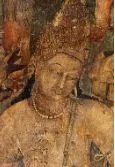Contribution of ancient India in literature:
Ancient India made significant contributions to literature across various genres, showcasing rich cultural, philosophical, and artistic traditions.
Here are some key contributions:
1. Vedic Literature (1500–500 BCE):
Rigveda: The oldest of the Vedas, consisting of hymns dedicated to various deities.
Samaveda, Yajurveda, Atharvaveda: Comprising ritual chants, prose, and incantations.
2. Epics:
Mahabharata (c. 400 BCE–400 CE): An epic poem attributed to Vyasa, containing the Bhagavad Gita, a philosophical dialogue.
Ramayana (c. 400 BCE–200 CE): Attributed to Valmiki, narrating the life of Prince Rama.
3. Puranas (c. 300–1500 CE):
Collections of myths, legends, and genealogies, providing insights into Hindu cosmology. Example: Vishnu Purana, Shiva Purana.
4. Dharma Shastras (c. 200 BCE–200 CE):
Legal and ethical treatises guiding societal conduct. Examples: Manusmriti (Laws of Manu), Arthashastra (Kautilya's treatise on statecraft).
5. Sanskrit Drama (c. 200 BCE–200 CE):
Natya Shastra by Bharata Muni: An ancient treatise on performing arts, encompassing dance, drama, and music.
6. Classical Sanskrit Literature (200 BCE–1200 CE):
Kalidasa: Renowned poet and playwright, author of works like "Shakuntala, Meghaduta, Kumarasambhava".
Bhavabhuti: Playwright known for works like "Malati-Madhava, Uttararamacharita."
Asvaghosha: Buddhist poet known for "Buddhacharita".
7. Tamil Literature (c. 300 BCE–600 CE):
Sangam Poetry: Comprising classical Tamil poems on love, war, and nature. Examples: "Tirukkural, Silappatikaram".
8. Jataka Tales (c. 300 BCE–200 CE):
Stories narrating the previous lives of Buddha, emphasizing moral lessons and virtues.
9. Buddhist Literature (c. 500 BCE–800 CE):
Tripitaka: Collection of Buddhist scriptures.
Jataka Tales: Stories of Buddha's previous lives.
Abhidhamma Pitaka: Philosophical treatises.
10. Grammar and Linguistics (c. 500 BCE–200 CE):
Pāṇini's Ashtadhyayi: An exhaustive treatise on Sanskrit grammar.
Yaska's Nirukta: Etymological explanations of Vedic words.
11. Mathematics and Astronomy (c. 500 BCE–600 CE):
Aryabhata's Aryabhatiya: Mathematical and astronomical work.
Brahmagupta's Brahmasphutasiddhanta: Astronomical and mathematical treatise.
12. Medicine (c. 600 BCE–600 CE):
Charaka Samhita: Ayurvedic text on medicine and surgery.
Susruta Samhita: Text on surgery and medicine.
13. Fables and Folk Tales:
Panchatantra: Collection of animal fables imparting moral lessons.
Jataka Tales: Stories illustrating moral values, associated with Buddhism.
14. Treatises on Art and Architecture:
Arthashastra: By Kautilya (Chanakya), offering insights into statecraft and economics.
Kamasutra: By Vatsyayana, discussing love, relationships, and aesthetics.
15. Alankara Shastra (Theory of Aesthetics):
Bhamaha's Kavyalamkara: Influential work on poetics.
The literary heritage of ancient India is vast and diverse, reflecting the intellectual, spiritual, and artistic pursuits of its people. The works continue to influence literature and thought across the world.
